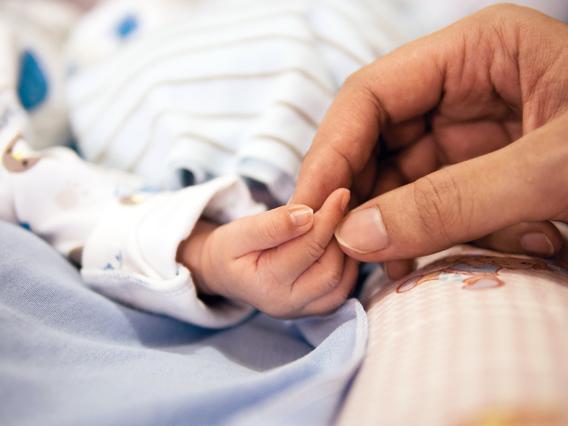You are here
Early detection, timely treatment crucial in postpartum depression recovery — experts
By Sarah Abu Zaid - Dec 23,2020 - Last updated at Dec 30,2020
AMMAN — The birth of a baby can give some mothers a feeling of excitement and joy, as well as fear and anxiety, but it can also result in something a mother can never anticipate: Postpartum depression (PPD), according to experts.
PPD is a complex mix of physical, emotional and behavioural changes that happen in some women after giving birth, according to experts.
According to the DSM-5, a manual used to diagnose mental disorders, PPD is a form of major depression that begins within four weeks after delivery. PPD causes the symptoms of a major depression, it said.
Some of these symptoms include: Depressed mood, loss of pleasure, feelings of worthlessness, hopelessness and helplessness, thoughts of death or suicide. Sometimes patients can have thoughts of hurting someone else, psychiatrists told The Jordan Times.
Approximately 70 per cent of women who suffer directly after giving birth, tend to have something called a “birth blues”, that may last up to two weeks. However, this is not considered a postpartum depression.
Many people do not believe that this kind of depression exists, so they try to heal it by going to traditional healers, psychiatrists said. This generally does not work and leaves the patient without treatment, which can cause a deterioration of the case that can eventually lead to suicide or infanticide, the experts added.
“The levels of estrogen and progesterone, the female reproductive hormones, increase during pregnancy, then they drop sharply after delivery. This can affect the mood. In addition to these chemical changes, the social and psychological changes of having a baby create an increased risk of depression,” Sousan Al Sayegh, a prenatal and postnatal maternal mental health consultant told The Jordan Times.
“Untreated postpartum depression can be dangerous for new mothers and their children, as it affects their attachment and fulfilment. A new mother should seek professional help, when the symptoms start to interfere with her daily life,” she added.
”Many mothers don’t seek help because of the stigma of being labelled failing at motherhood, since the expectations of this joyous time can sometimes obfuscate the reality of how hard the postpartum period is for any mother,” she said.
“During postpartum depression, women need to give themselves time to adjust, and try to get plenty of rest. Also, asking for help and support from loved ones and partner whenever needed is very important to maintaining their mental and physical health,” she added.
“Some theories on postpartum depression suggest that postpartum depression usually happens to women that have a history of depression prior to becoming pregnant, or during pregnancy, or a history of depression or premenstrual dysphoric disorder,” Mohammad Abu Halimeh, a psychiatrist and addiction therapist, told The Jordan Times.
“Another cause of postpartum depression is the lack of family support, as the husband plays a major role in avoiding such depression,” the psychiatrist said. “In the first two weeks family members can support the mother to try to get back to her routine, however, if the depression worsens, she must seek help,” Maen Abki, a psychiatrist and addiction therapist, told The Jordan Times.
“Mothers who suffer from postpartum depression and seek help immediately, usually witness a quick improvement and responsiveness to the medicines,” he added.
Related Articles
Women who have asthma during their pregnancies are more likely to experience postpartum depression after delivery, a large Canadian study su
While many people can pick up on signs of postpartum depression in new mothers, the same signs are often mistaken for something else or miss
AMMAN — Calls are on the rise to extend maternity leave to 90 days instead of 70 for female private sector employees. According t


















